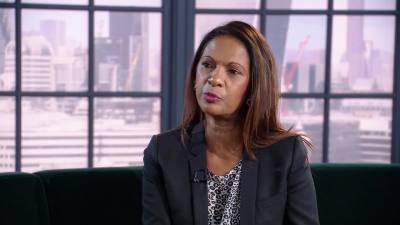
The prospects of chancellor Jeremy Hunt making some pre-election tax cuts have been dampened as government borrowing soars, according to some in the industry.
Yesterday (April 23), the office for national statistics published its public sector finance figures which revealed government borrowing had overshot the OBRs forecast by £6.6bn, coming in at £120.7bn for the year ending March 2024.
Susannah Streeter, head of money and markets at Hargreaves Lansdown, said the figures give Hunt “even less opportunity” to offer tax breaks ahead of a general election.
“The magic money tree is increasingly thirsty, stuck in a drought caused by increased spending on public services and benefits.
"Although the amount borrowed dropped sharply compared to last March, on a 12-month basis the picture is less pretty. The government has had to borrow £6.6bn more over the last financial year than forecast by the OBR,” she added.
Figures also released by HMRC yesterday found tax receipts reached £827.7bn in 2023-24, almost 5 per cent higher than the previous year.
Danni Hewson, head of financial analysis at AJ Bell, also believed public sector figures did not give the chancellor the “cushion” he needed to make further tax cuts but highlighted the healthy tax take indicated the economy was resilient.
She said: “However, public sector services are creaking and looking at these numbers there seems little room for manoeuvre, especially if whoever sits behind the desk at number 11 wants to create some insulation against another big crisis like the pandemic.
“All of that doesn’t necessarily mean tax cuts are less likely, it just means that what comes next is likely to hurt more.”
Streeter also warned although tax receipts came in higher last March, the situation looks set to “deteriorate”.
She said: “Fewer interest rate cuts are now priced in by financial markets, which is likely to raise expectations about the costs of borrowing for the government.
“Hunt has been reportedly mulling plans to cut National Insurance for the third time in a row this year and raising the threshold for stamp duty. But he’s balancing on an increasingly precarious branch as he tries to shake down treats for voters.’’
This comes after the Institute for Fiscal Studies found a combination of a new tax year and the government’s forecast horizon rolled forward could add an estimated £12bn to Jeremy Hunt’s fiscal ‘headroom’.
It said this boost could allow for a third 2p cut to national insurance in a pre-election fiscal event but warned this should not be the basis for immediate and permanent tax cuts.
The IFS called the boost to the chancellor’s ‘headroom’ a “quirk of a poorly designed fiscal rule”.
alina.khan@ft.com






